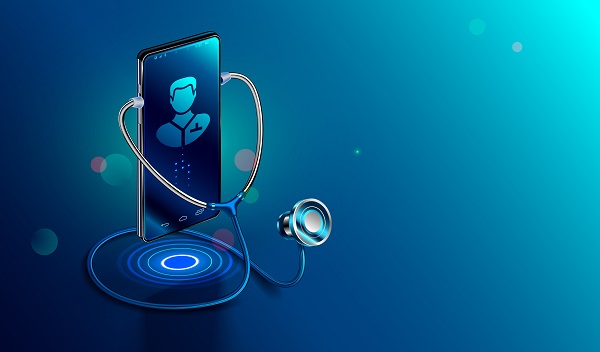By Tahani Dakkak and Certina Ho
The use of mobile technology in healthcare has been expanding in recent years. One of the common forms of mobile technology utilized in healthcare is mobile health applications (or mHealth apps). This growth is mainly driven by the increased adoption of smartphones and investment in the digital health market.
Recent advancements in technology facilitated application developers to refine mHealth apps by integrating artificial intelligence to simulate human cognition in the interpretation of health data and provide users/patients with personalized care recommendations. There is a growing body of evidence supporting the value of mHealth apps in improving the quality of care for patients when used in conjunction with traditional care. Many mHealth apps are now available to help users/patients manage their medical conditions, particularly, in cardiology, endocrinology, and mental health care.
Pros and cons of mHealth apps
Some of the reported benefits of using mHealth apps to manage medication conditions include improved medication adherence and better self-management behaviours. While mHealth apps are widely accessible and often cost-effective, it is currently challenging to fully assess the health claims or recommendations made by app developers. Moreover, there may be potential privacy and security risk implications when a consumer/patient enters personal and health related information into a mobile application. To minimize privacy risks and maximize health benefits, healthcare professionals are encouraged to educate/support patients when they are seeking mHealth apps that will meet their health goals, but without jeopardizing their privacy and confidentiality.
The seven guiding principles
In 2015, the Canadian Medical Association (CMA) released the “Guiding Principles for Physicians Recommending Mobile Health Applications to Patients” (https://policybase.cma.ca/link/policy11521) with information on how to assess the credibility and safety of a mHealth app. With the high adoption of smartphones, it is anticipated that more patients will inquire about mHealth apps from their healthcare providers. Therefore, we encourage all healthcare professionals to review these guiding principles (Table 1) and be ready to support patients in the management and monitoring of their health and medical conditions through the potential use of mHealth apps.
Table 1. Guiding Principles for Physicians Recommending Mobile Health Applications to Patients (https://policybase.cma.ca/link/policy11521)
| Guiding Principles (https://policybase.cma.ca/link/policy11521) | Remarks |
| 1. Endorsement by a recognized association or health care organization | Recommend a mHealth app that has been endorsed or developed by a professional or recognized medical/health association or one that has been subject to a robust peer review process. |
| 2. Usability | Learn about the patient’s level of computer literacy and recommend a mHealth app that matches their comfort level. You may also consider testing the mHealth apps prior to making a recommendation to patients. |
| 3. Reliability of information | Information presented/provided on mHealth apps should be referenced, evidence-based, and current (i.e., time-stamped with the most recent update indicated). |
| 4. Privacy and security | Patients should be made aware of the potential security risks associated with use of mHealth apps and they should also be aware of existing security features on their mobile device. Refrain from recommending a mHealth app that lacks a clear privacy policy outlining how the data collected will be used. |
| 5. Free of conflicts of interest | Patients should be made aware of the company or the organization responsible for the development of the mHealth app and their mandate. Patients should be provided with resources to make informed decisions. |
| 6. Avoid contribution to fragmentation of health information | Recommend mHealth apps that will contribute to existing data repositories that are standardized, linked, and/or cross-referenced, such as, existing electronic medical records. |
| 7. Validated impact on patient health outcomes | Recommend mHealth apps that have been assessed and validated to demonstrate impact on patient health outcomes. |
Tahani Dakkak is a PharmD Student at the Leslie Dan Faculty of Pharmacy, University of Toronto; and Certina Ho is an Assistant Professor at the Department of Psychiatry and Leslie Dan Faculty of Pharmacy, University of Toronto.




